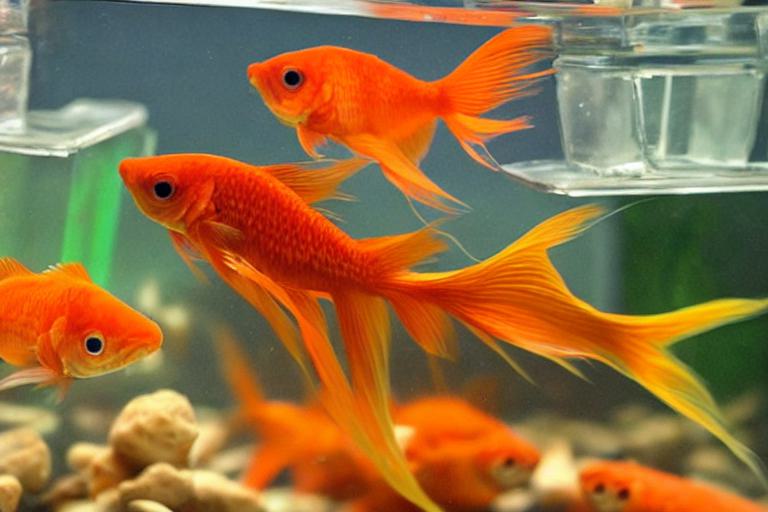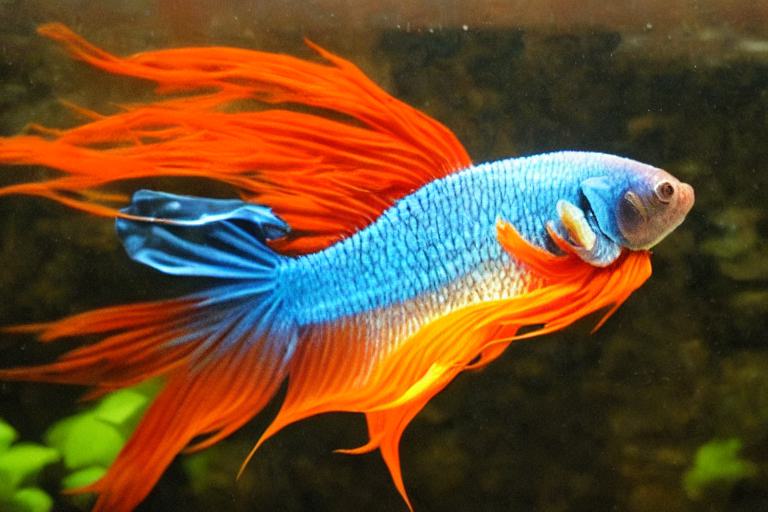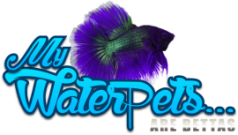Betta fish are a type of freshwater fish that are popular among aquarium enthusiasts. They are known for their vibrant colors and interesting fins. Betta fish are also known to be aggressive towards other fish, which is why they are often kept in single-fish tanks.
One question that many people have about betta fish is whether or not they can eat goldfish food. The answer is yes, betta fish can eat goldfish food. However, it is important to note that goldfish food is not the best diet for betta fish. Goldfish food is high in carbohydrates, which can lead to obesity and other health problems in betta fish. It is important to feed betta fish a diet that is high in protein and low in carbohydrates. There are many commercial betta fish foods available that are specifically designed to meet the nutritional needs of betta fish.
What’s in goldfish food that makes it unsuitable for betta fish?
Thiaminase is an enzyme that breaks down thiamine, which is an essential vitamin for betta fish. However, the main difference between goldfish food and betta fish food is the inclusion of thiaminase. For this reason, it’s best to avoid feeding goldfish food to betta fish. Goldfish food is typically made up of pellets or flakes that contain a variety of nutrients like protein, fat, fiber, and vitamins. Without thiamine, betta fish can suffer from neurological problems, muscle weakness, and even death.

Food that’s great for betta fish besides flakes and pellets
These foods are low in calories and will help keep your betta fish slim and fit. Lastly, you can give your betta fish vegetables, such as cucumber or zucchini. There are a variety of foods that are great for betta fish besides flakes and pellets. Another option is freeze-dried food, which is also high in protein and easy to store. These foods are high in protein and will help your betta fish grow and stay healthy. One option is live food, such as brine shrimp or bloodworms.
Feeding live food like daphnia or mosquito larvae
The answer is yes, but there are a few things to keep in mind. If you’re looking to add a little variety to your betta’s diet, you may be wondering if they can eat goldfish food.
So, while they can technically eat it, it’s not the best option. First, goldfish food is typically lower in protein than what bettas need. You’ll want to supplement their diet with a high-quality betta food.
Second, goldfish food can be a little messy. Otherwise, you’ll likely end up with a messy tank. If you decide to feed your betta goldfish food, be sure to do it in a separate tank or container.
And lastly, goldfish food can be dangerous if not fed properly. Overfeeding can lead to health problems down the road. If you do decide to feed your betta goldfish food, be sure to only give them a small amount at a time.
Frozen food like bloodworms, tubifex and daphnia
When thawing frozen food, always do so in a bowl of clean, fresh water, and never use hot water, as this can kill the beneficial bacteria in the food. However, it is important to thaw these foods properly before feeding them to your betta fish, as they can contain harmful bacteria that can make your fish sick. Frozen food like bloodworms, tubifex and daphnia can be a great option for betta fish. Once thawed, frozen food should be used within a few days, and any unused portion should be discarded. These foods are high in protein and nutrients, and can help keep your betta fish healthy and active.
Health problems your betta may encounter when eating goldfish food
Bettas are also known to be aggressive, which is why they are often kept in separate tanks from other fish. Betta fish are a type of freshwater fish that are popular pets. They are known for their bright colors and beautiful fins.
Goldfish food can also contain harmful chemicals that can be toxic to bettas. One problem is that goldfish food is often high in fat and carbohydrates, which can lead to obesity in bettas. While bettas are typically not fed goldfish food, there are some health problems that can occur if they do eat it.
There are many different types of betta fish food available that will provide your fish with the nutrients they need to stay healthy. If you have a betta fish, it is best to feed them food that is specifically made for them.

Behavioral changes caused by a lack of protein
To prevent these problems, it is important to make sure that bettas have a diet that is high in protein. A protein deficiency can also cause bettas to develop swim bladder disease, which can be fatal. They may also become more aggressive, and their fins may become frayed. Without enough protein, bettas may become lethargic and stop eating. A protein deficiency can cause a number of behavioral changes in betta fish.
The importance of protein during the first year of a betta’s life
This means that goldfish food, which is only around 10% protein, is not enough to support your betta fish’s growth. You should supplement your betta’s diet with live foods or high-quality pellets that are rich in protein. In the first year of life, a betta fish needs a diet that is around 50% protein. As your betta fish grows, it will need more and more protein to support its development.
Protein is essential for your betta fish’s growth and development. This means that goldfish food, which is only around 10% protein, is not enough to support your betta fish’s growth. Without enough protein, your betta fish will not grow to its full potential. You should supplement your betta’s diet with live foods or high-quality pellets that are rich in protein. In the first year of life, a betta fish needs a diet that is around 50% protein.
In the first year of life, when your betta fish is growing the most, it is especially important to make sure that it is getting enough protein. Goldfish food is not a good source of protein for betta fish and should be supplemented with live foods or high-quality pellets. A diet that is lacking in protein can lead to stunted growth, a weakened immune system, and a host of other health problems. Protein is essential for many aspects of your betta fish’s health, including its growth, development, and immune system.
Frequently Asked Questions
1. Can betta fish eat goldfish food?
No, betta fish cannot eat goldfish food. The two types of food are not nutritionally equivalent and betta fish require a diet that is specifically tailored to their needs.
2. Why can’t betta fish eat goldfish food?
Betta fish cannot eat goldfish food because the two types of food are not nutritionally equivalent. Betta fish require a diet that is specifically tailored to their needs.
3. What type of food do betta fish need?
Betta fish require a diet that is specifically tailored to their needs. This diet includes live or frozen foods such as bloodworms, brine shrimp, and daphnia.
4. What happens if betta fish eat goldfish food?
If betta fish eat goldfish food, they will not receive the nutrients they need and could become sick.
5. Can I mix betta food and goldfish food?
No, you should not mix betta food and goldfish food. The two types of food are not nutritionally equivalent and betta fish require a diet that is specifically tailored to their needs.
Final thoughts
Betta fish are a type of freshwater fish that are popular as pets. They are known for their vibrant colors and long fins. Betta fish are native to Southeast Asia and can be found in Thailand, Laos, Cambodia, and Vietnam.
Betta fish are carnivores and their diet consists mostly of live food, such as brine shrimp, bloodworms, and mosquito larvae. However, betta fish can also eat goldfish food. Goldfish food is a good source of nutrition for betta fish and can help them grow and stay healthy.
